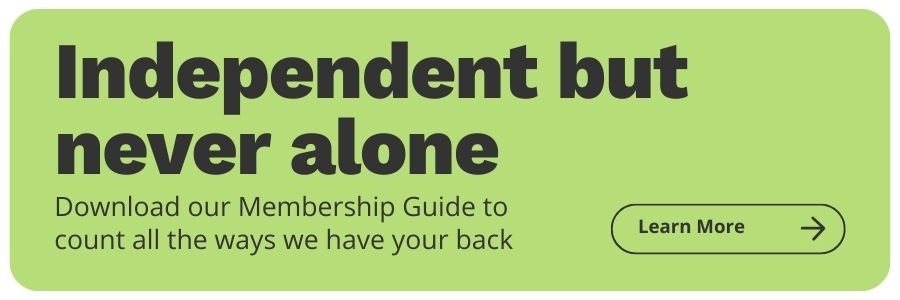How to Help Gen Z Down the Path to Financial Wellness
Share this
Move over, Millennials; there’s a new class in town. Generation Z (Gen Z) is the latest age group phasing into the workforce. Those who work in financial planning know: it’s never too early to start.
Every generation is shaped by the actions of their predecessors and the distinctive events and trends they collectively experience as they join the ranks of adulthood. This is especially true when you consider finances. But, you gotta start somewhere.
If you’ve noticed that your client base is expanding to include Gen Z but aren’t quite sure how to talk money with these “Zoomers,” we’ve collected our top tips to help connect when speaking with the latest generation about their finances.
Understanding Gen Z: The Basics
So, who exactly are we working with? For starters, different sources will vary how they bookend the year range, but according to an article from McKinsey, Gen Z comprises people born between 1996 and 2010, and their identity has been molded by the digital age, climate anxiety, a shifting financial landscape, and COVID-19.
A few other considerations:
- This group is considered “digital natives” and has grown up in a time where the internet has always been there — and they know how to use it.
- Research from Stanford describes Gen Z as “highly collaborative, self-reliant, and pragmatic.”
- They’re called out as being “money-driven and ambitious” by GWI (so good news for you!). The same article notes they like to travel, set boundaries, and are prone to anxiety, so keep that in mind.
Now that you’re armed with a little background, read on for seven ways to have productive conversations about money with a Gen Z individual.
1. Create a safe space; be open and non-judgmental
Gen Z individuals are often credited with being more direct than previous generations, but ironically, they’re also called out for being more sensitive. Foster an environment where the Gen Z person feels comfortable discussing their financial situation without fear of judgment. Remember, Gen Z tends to be more open-minded about money and may have different priorities than previous generations. So be prepared to listen. It's the best foot forward when creating a safe space.
2. Understand their financial context
Want to alienate your Gen Z individual? Just start your conversation with “Well, back in my day…” Jokes aside, every generation faces different financial scenarios. Recognize that many Gen Zers will have other economic challenges and opportunities compared to older generations. Whether it’s the burden of student loans, a competitive job market, or limited access to traditional financial resources, empathizing with their circumstances can help you better understand their financial decisions and goals.
3. Emphasize financial literacy
Gen Z has grown up in a digital era with access to vast amounts of information. As a financial planner, you have the power to point them in the right direction and encourage them to develop strong financial literacy skills by recommending videos, websites, or other resources — especially content you’ve created — that can help them learn about budgeting and investing.
4. Cover the importance of saving
While Gen Z may have different financial goals than previous generations (such as experiences over objects), it's still crucial to emphasize the significance of saving money. Highlight the benefits of an emergency fund and long-term savings, such as achieving financial independence or funding future goals like homeownership or entrepreneurship.
5. Encourage a long-term mindset
Besides big purchases or rainy-day funds, it’s important to help Gen Z understand how crucial planning for the “future you” is, even if it feels distant (hello, overcoming temporal discounting). You don't have to be a behavioral economics expert to understand what a powerful driver instant gratification has become or how the influential growth mindset to "be present" has widened the gap between the sharply in-focus "present self" and very out-of-focus "future self."
Discuss concepts like retirement savings, investing, and the power of compounding over time, and Gen Zers won't be the only group to respond with a glazed-over disconnect with such "intangibles." You'll find that building a bridge between the two selves is the key to success. Start with their goals. Map to the gap between where they are and where they want to be by tying their current situations — like rent and car payments — to actions they’ll need to take to reach their goals like “not being 9-to-5 ‘til 65.” Manage this, and you'll find a very engaged partner in their financial planning.
6. Share personal experiences and stories
Gen Z values authenticity and real-life experiences (hello, TikTok-inspired travel). Sharing personal anecdotes about your financial journey, successes, and challenges can help them relate to and learn from your experiences. Be honest about mistakes you made and what you learned from them — but avoid preaching.
7. Consider the gig economy and alternative income streams
Gone are the days of graduating college and staying with one company for the duration of your career. Gen Z is creative and keen to embrace the gig economy and alternative income streams like freelancing, side hustles, or entrepreneurship. This means they could have much more money to work with, an entirely unpredictable income stream — or a little bit of both! Discuss the advantages and challenges of these options and how they can impact their financial stability and future goals, then empower them to make their own choices based on those potential outcomes.
If they aren't satisfied with their choices, even better! It's an excellent opportunity to invite them to put their naturally creative skills to work and solve the challenges they face when prioritizing their short and long-term well-being. Remember — no matter your age difference — you serve them best if you treat your relationship like a partnership. The less parental and more guide-at-your-side you are, the better off you'll be!
Small steps for great dividends
Though some sources say Gen Z would rather talk about anything besides money, the right approach will help you understand where they’re coming from and how to help them start down the path to financial wellness. By keeping dialogue open, refraining from judgment or assumptions, and encouraging them to ask questions and seek out their own research, you can help a Gen Z individual take small steps now that will pay great dividends later.

About the Author
Guest author Nicole Proctor is a content matter expert and researcher who enjoys sharing deep insights through her writing wizardry.
Share this
- Running Your RIA Efficiently: Outsourcing Bookkeeping with XYPN Books
- Road to Launch with XYPN Member Alan Skillern, CFP®, MBA
- Coaching for Better Time Management: Prioritizing Organic Growth in Your Daily Routine
- Boost Your Financial Advisory Practice: SEO Strategies and CRM Optimization for Sales Success
- Advisor Blog (693)
- Financial Advisors (221)
- Growing an RIA (99)
- Digital Marketing (87)
- Marketing (84)
- Community (81)
- Start an RIA (76)
- Business Development (72)
- Coaching (72)
- Running an RIA (70)
- Compliance (69)
- Client Acquisition (65)
- Technology (64)
- XYPN LIVE (59)
- Entrepreneurship (57)
- Sales (49)
- Practice Management (44)
- Client Engagement (41)
- Bookkeeping (38)
- XYPN Books (38)
- Investment Management (37)
- Fee-only advisor (36)
- Lifestyle, Family, & Personal Finance (31)
- Employee Engagement (30)
- Client Services (25)
- Financial Education & Resources (25)
- Journey Makers (21)
- Market Trends (21)
- Process (14)
- Niche (11)
- SEO (9)
- Scaling an RIA (9)
- Career Change (8)
- Transitioning Your Business (7)
- Partnership (6)
- Transitioning To Fee-Only (4)
- Social Media (3)
- Transitioning Clients (3)
- Emerald (2)
- Persona (2)
- RIA (2)
- Onboarding (1)
- Sapphire (1)
Subscribe by email
You May Also Like
These Related Stories

Content Marketing: An Intro for Financial Advisors
Nov 19, 2015
4 min read

How to Deal With Failure In Your First Year
Feb 25, 2016
5 min read





